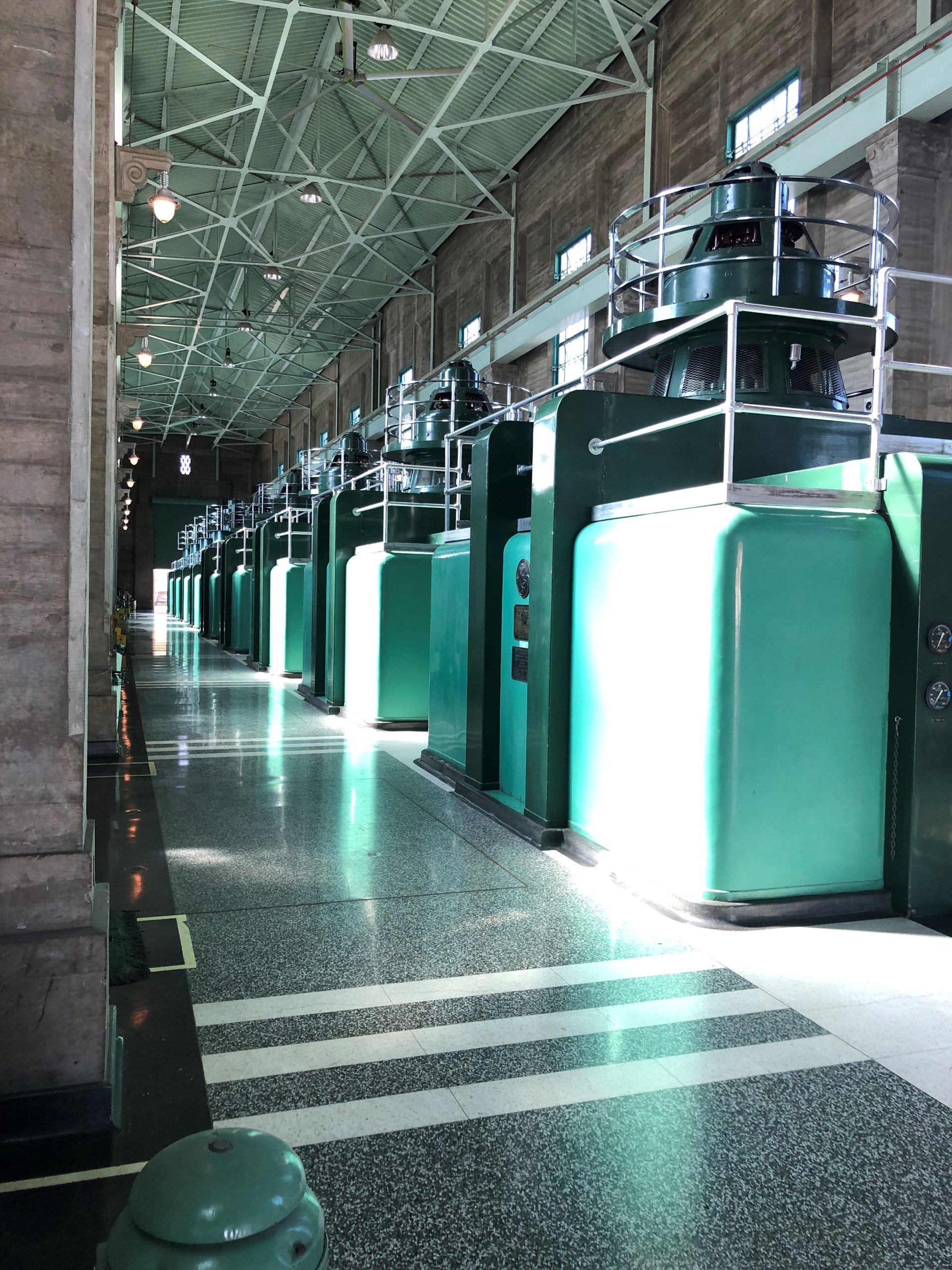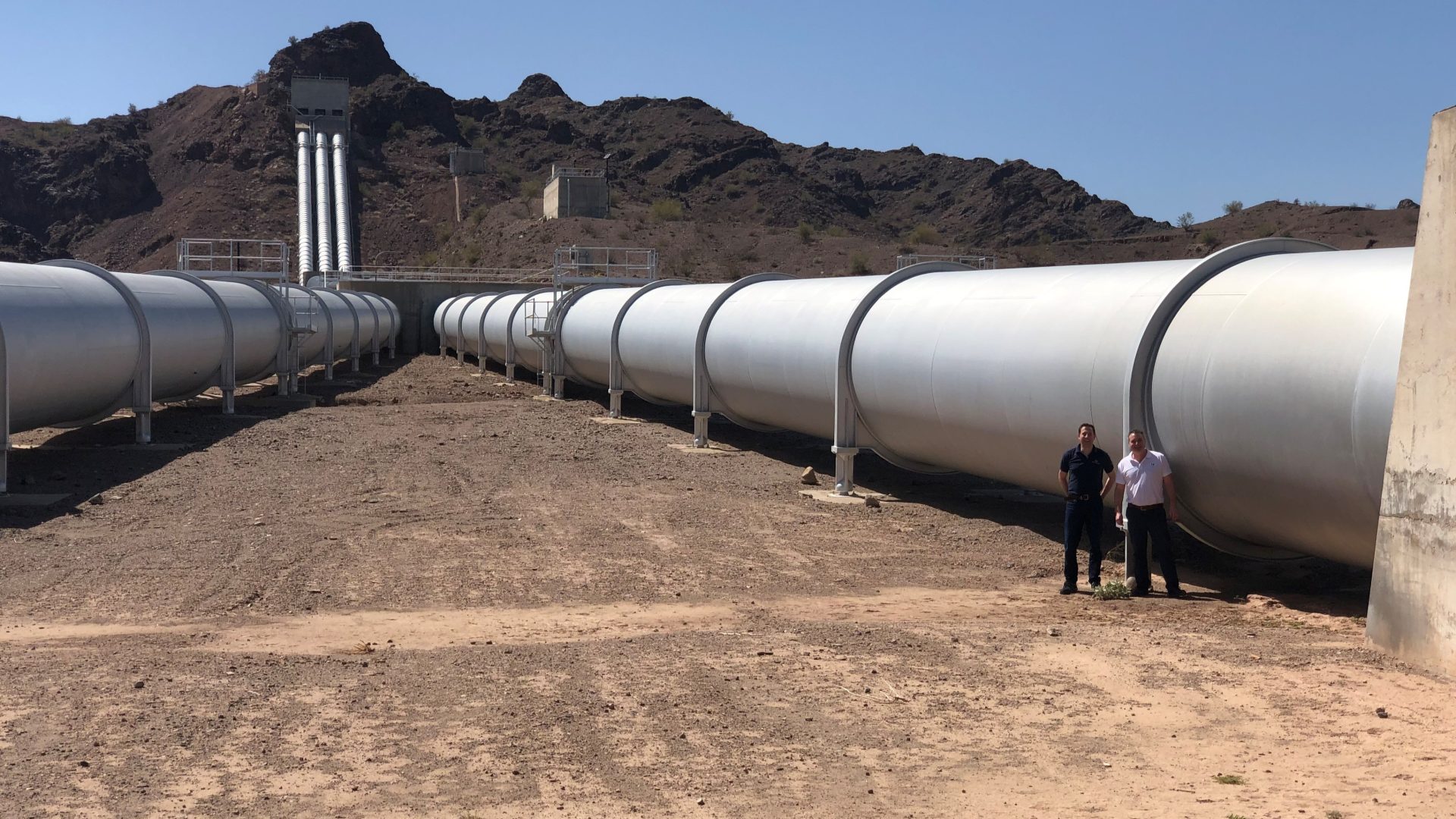
A successful pilot project for The Metropolitan Water District of Southern California (MWD) has proved the superior speed, cost reduction and accuracy of thermodynamic pump testing.
Funded by non-for-profit collective, Waterstart, MWD used Riventa’s portable thermodynamic system to test a 7.5MW pump at one of its crucial pumping stations on the Southern California Aqueduct that together with another eight pumps, provides 1.5 billion gallons of drinking water (daily) to the 19 million people of southern Los Angeles.
‘A much clearer picture than ever before of exactly how this pump is performing’
David Sadamoto, Senior Engineer at MWD said: “When Waterstart first brought Riventa’s technology to our attention, we had quite a job convincing ourselves, because the claims being made sounded so very superior to the conventional approach, which relies on traditional flow measurement that is subject to significant uncertainties. However, we soon saw the detail of the math in the continuous data, which gave us a much clearer picture than ever before of exactly how this pump is performing, which is vital for reliability, and uses just a fraction of the manpower required to carry out a robust conventional test”.
To fully compare, MWD ran their own standard test, as Marty Smith, explained: “We’ve always tried to monitor the performance of our pumps as best we possibly can, but with Riventa we’ve made a major breakthrough, especially when you get right down to a Millikelvin!
“Acoustic flowmeters can do a reasonable job, but nothing like this, which also benefits from being much easier; gaining the flow data and horse power losses by simply tapping into the pump’s suction and discharge nipples. With acoustic flowmeters we’d need 10 metres of upstream pipe and another 5 metres downstream, which is expensive and time-consuming. Conventional testing is also very labor-intensive; takes about 200 manhours of planning, and also presents difficulties with achieving known accuracies”.
Located two miles west of the Intake Plant, the pumping station where the Riventa monitoring took place lifts water from the Gene Wash Reservoir 303 feet to the Copper Basin Reservoir, at an elevation of 1,037 feet.
The pathway that led to MWD trialling this thermodynamic testing began when Riventa attended a TAG (Technology Acceptance Group) customer forum arranged by Isle Utilities, where Waterstart saw the potential of this innovative means of maximizing asset data.
Michael Thomas, Board Member at Waterstart, said: “We soon saw how Riventa’s Thermodynamic testing could offer MWD a very practical, sustainable solution. By us helping offset the initial risk of a trial, it is very encouraging to see just how well the pilot has worked”.
The ongoing drought, the worst that the MWD engineers saw that they have ever known, has added another layer of pressure to the already demanding role to meet supply – so the pilot with Riventa – delayed by Covid for two years – had to be carried out within a very tight window of opportunity.
Marty Smith, who has worked at MWD for over 30 years, continued: “To pause this big pump for the test was a huge deal. Not getting water to Los Angeles is not an option (!), but Riventa and Waterstart worked very closely with us to make everything happen in a very tight time slot. To be frank, this has all been quite a remarkable turnaround, considering that when we first looked at the claims of the technology, we almost rejected it out of hand!”.
‘Able to see true levels of reliability’
He added: “As well as the accuracy, another big advantage with Riventa is that the cost does not increase with scale. We have found this thermodynamic testing to be a very cost-effective and efficient way of implementing new technology. Being able to see true levels of reliability of our pumps – and check that they are in good shape, is very important. Power is a big deal, so measuring any true losses in efficiency will allow us to fully understand how our pump is operating”.
Riventa’s Technical Director, Tom Clifford, commented: “Getting to work with MWD on demonstrating how this prestigious pumping station can be optimised has been challenging yet extremely rewarding for all concerned. We hope to build on the pilot and deliver an installed solution that helps MWD manage these assets long into the future”.
‘Validated data that gives us confidence’
MWD’s David Sadamoto, concluded: “So far, it is all very positive, with validated data that gives us confidence by helping greatly with our methodology. Riventa have done a tremendous job for us. brings everything to life; head, flow, power, efficiency – and so quickly. It is a very elegant solution”.



